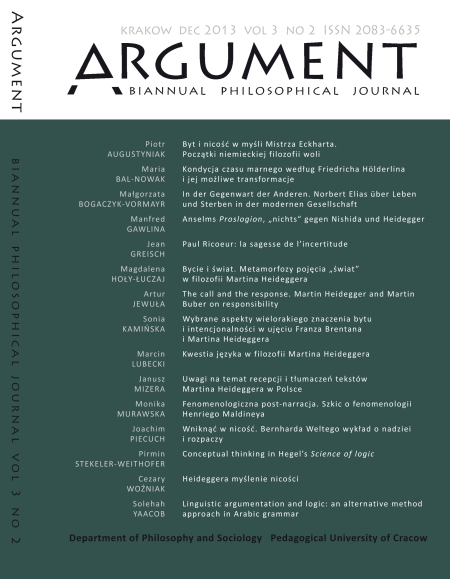Conceptual thinking in Hegel’s Science of logic
Słowa kluczowe:
conceptual holism, logical atomism, sortal domains, generic forms of change, dispositions, dialectics, categories, quality, quantity, measure, essenceAbstrakt
Analytical philosophy after Frege’s logicism and Russell’s logical atomism presupposes sortal domains of individual “entities” for which we already have defined their identities and elementary predicates. Such “things” exist only in ideal “possible world” which are nothing but structured sets of purely mathematical sets. In contrast to such purely abstract models, Hegel analyses the role of conceptual differentiations and corresponding default inferences in the real world. Here, all objects are spatially and temporally finite. Even if real things move according to certain forms, they are only moments in holistic processes. Moreover, the forms are no objects of immediate empirical observation but presuppose successfully reproducible actions and speech acts. As a result, no semantics of world-related reference can do without Hegel’s categories, which go far beyond the means of merely relational mathematical logic.


